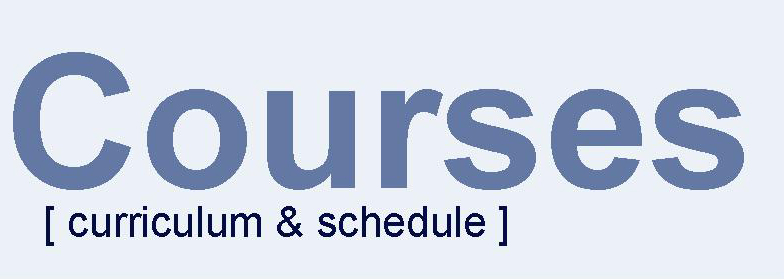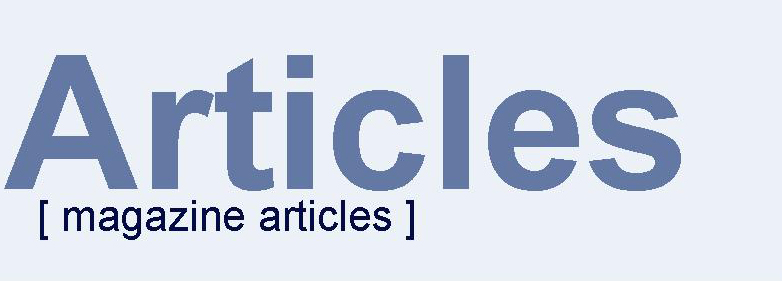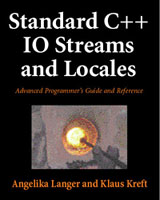|
Thanks to everybody who took the time to send us an email to draw our
attention to mistakes and typos in the book. We thank our readers for reading
the book so carefully and attentively that you could spot the flaws. Thanks
a lot!
Below is a list of errors that have have been identified and have not
yet been corrected in the second printing. For a list of errors in the
first printing click
here
.
Feel free to send us
EMAIL
as soon as you detect another mistake.

page 71:
The last paragraph on this page contains two typos.
RETRIEVAL AND REPLACEMENT.
The concrete stream classes
also add another version of the retrieval function
rdbuf()
, which
hides the
rdbuf()
function inherited from class
basic_ios<>
.
The two functions differ in their return type. The inherited version returns
a pointer to the stream base class
basic_streambuf<
charT, class Traits>
. The added version returns a pointer to a concrete
stream buffer type, such as
basic_filebuf<
charT, class Traits>
. This is the pointer to the contained concrete
stream buffer object. The subsequent section explains the subtle differences
in more detail.
error found by:
Chandra Shekhar Kumar, Member
Of Technical Staff, Vistaar Systems Pvt. Ltd., January 2002

page 118:
The code sample contains a number of typos. Class istringstream
does not have tellp and seekp member functions. They are called tellg
and seekg.
istringstream buf;
// fill string stream
// read input until a position of interest and memorize the
position
istringstream::pos_type p = buf.
();
if (p != istringstream::pos_type(-1))
{ //
()
was successful
// read further input
...
}
// return to the point of interest
buf.
(p);
// return to beginning of stream
buf.seekg(0,ios_base::beg);
error found by:
Klaus Wittlich, Cologne Germany,
December 2001

page 148 & 161:
The constructor of class
date
is incorrect. The fields
tm_wday
and
tm_yday
of
struct tm
are initialized to
0
,
which is incorrect for arbitrary dates. The correct values for these fields
can be computed by means of the C library function
mktime
. Change
constructor to:
On page 148:
date(int d, int m, int y)
{
tm_date.tm_mday = d;
tm_date.tm_mon = m-1; tm_date.tm_year = y-1900;
tm_date.tm_sec = tm_date.tm_min
= tm_date.tm_hour = 0;
tm_date.tm_wday = tm_date.tm_yday
= 0;
tm_date.tm_isdst = 0;
}
On page 161:
date(int d, int m, int y)
{
tm_date.tm_mday = d;
tm_date.tm_mon = m-1; tm_date.tm_year = y-1900;
tm_date.tm_sec = tm_date.tm_min
= tm_date.tm_hour = 0;
tm_date.tm_wday = tm_date.tm_yday
= 0;
tm_date.tm_isdst = 0;
ok = (
) ? true : false;
}
error found by:
Klaus Wittlich, Cologne Germany,
February 2002

page 149:
The code sample contains a typo. Change to:
template<class charT,
Traits>
friend basic_istream<charT,Traits>&
operator>> (basic_istream<charT,Traits>& is, date& dat);
template<class charT,
Traits>
friend basic_ostream<charT,Traits>&
operator<< (basic_ostream<charT,Traits>& os, const
date& dat);
error found by:
Don McCliman, December 2002

page 157&159:
The initialization of
iostate
variables is incorrect.
ios_base::iostate
is an implementation-definded type and there need not be an initial value
0
defined.
One should use
ios_base::goodbit
as an initial value instead.
Change to:
page 157: The extractor:
template<class charT, class Traits>
basic_istream<charT, Traits>&
operator>> (basic_istream<charT, Traits >&
is, date& dat)
{
if (!is.good()) return is;
ios_base::iostate err =
;
use_facet<time_get<charT,istreambuf_iterator<charT,Traits>
> >(is.getloc())
.get_date(is, istreambuf_iterator<charT,Traits>(),is,
err, &dat.tm_date);
return is;
}
page 159: The extractor:
template<class charT, class Traits>
basic_istream<charT, Traits>&
operator>> (basic_istream<charT, Traits >&
is, date& dat)
{
if (!is.good()) return is;
ios_base::iostate err =
;
typename basic_istream<charT,Traits>::sentry
ipfx(is);
if(ipfx)
{
use_facet<time_get<charT,istreambuf_iterator<charT,Traits>
> >(is.getloc())
.get_date(is, istreambuf_iterator<charT,Traits>(),is,
err, &dat.tm_date);
}
return is;
}
error found by:
Helmut Zeisel, March 2002

page 162:
The code sample contains a typo. Change to:
template<class charT,
Traits>
friend basic_istream<charT,Traits>&
operator>> (basic_istream<charT,Traits>& is, date& dat);
template<class charT,
Traits>
friend basic_ostream<charT,Traits>&
operator<< (basic_ostream<charT,Traits>& os, const
date& dat);
error found by:
Klaus Wittlich, Cologne Germany,
December 2001

page 163&164:
The initialization of
iostate
variables is incorrect.
ios_base::iostate
is an implementation-definded type and there need not be an initial value
0
defined.
One should use
ios_base::goodbit
as an initial value instead.
Change to:
page 163: The extractor:
template<class charT, class Traits>
basic_istream<charT, Traits>&
operator>> (basic_istream<charT, Traits >& is, date&
dat)
{
if (!is.good()) return is;
ios_base::iostate err =
;
...
page 164: The inserter:
template<class charT, class Traits>
basic_ostream<charT, Traits>&
operator<< (basic_ostream<charT, Traits >& os, const
date& dat)
{
if (!os.good()) return os;
ios_base::iostate err =
;
...
error found by:
Helmut Zeisel, March 2002

page 169:
The code sample contains a typo. Change to:
cout << "A date like Dec 2, 1978" << " is needed: ";
date d;
cin.exceptions(ios_base::badbit | ios_base::failbit);
try { cin >> d; }
catch (ios_base::failure&)
{
<<
"date extraction failed" << endl; throw; }
cout << "This is the specified date in US notation: " <<
d << endl;
error found by:
Klaus Wittlich, Cologne Germany,
December 2001

page 171:
The initialization of
iostate
variables is incorrect.
ios_base::iostate
is an implementation-definded type and there need not be an initial value
0
defined.
One should use
ios_base::goodbit
as an initial value instead.
Change to:
The extractor:
template <class charT, class Traits, class Argument>
basic_istream<charT, Traits>& g_extractor
(basic_istream<charT, Traits>& is, Argument& arg)
{
ios_base::iostate err =
;
...
The inserter:
template <class charT, class Traits>
basic_ostream<charT, Traits>& g_inserter
(basic_ostream<charT, Traits>& os, const Argument& dat)
{
ios_base::iostate err =
;
...
error found by:
Helmut Zeisel, March 2002

page 173:
The code sample contains a couple of mistakes. Change to:
template <class charT, class Traits>
ios_base::iostate get_from(basic_istream<charT, Traits>&
is)
{
ios_base::iostate err =
;
use_facet<
>(is.getloc()).get_date
(is, istreambuf_iterator<
,
char_traits<
>
>() ,is, err, &tm_date);
if (!(*this) || err)
return ios_base::failbit;
else
return ios_base::goodbit;
}
template <class charT, class Traits>
ios_base::iostate print_on(basic_ostream<charT, Traits>&
os) const
{
char const * const patt = "%x";
char fmt[3];
basic_stringbuf<charT,Traits> sb;
ios_base::iostate err =
;
...
errors found by:
Klaus Wittlich, Cologne Germany,
December 2001 and Helmut Zeisel, March 2002

page 174:
Part of the sample code for the inserter is incorrect because the
fill_n
algorithm does not return the advanced output itertor as we had assumed,
but returns void instead. The corresponding code must be corrected to:
else
{
if (os.flags()
& ios_base::left)
{
sink = copy(s.begin(), s.end(), sink);
}
else
{
sink = copy(s.begin(), s.end(), sink);
}
}
error found by:
Steffen Lottermoser, January
2003

page 215:
Incorrect reference in footnote 15. Change to:
15. We use function
try
blocks for catching exception in these
constructors. If you are not familiar with function
try
blocks, see section
,
Function
try
Blocks, for further explanation.
error found by:
Helmut Zeisel, March 2002

page 220:
Incorrect references to appendix. Change to:
This kind of cast is called a
downcast
and is performed via the
dynamic_cast
operator. Section
,
Dynamic Cast, in appendix G explains the dynamic cast and related issues.
Such a cast is called a
peer class cast
(see section
,
Dynamic Cast, in appendix G for further explanations) and can be safely
performed via the
dynamic_cast
operator.
error found by:
Helmut Zeisel, March 2002

page 233:
Typo in code sample on bottom of page. Change to:
template <class charT, class traits>
unbuffered_streambuf<charT,traits>::int_type
unbuffered_streambuf<charT,traits>::
{
if (!takeFromBuf)
{
if (!traits_type::eq_int_type(c, traits_type::eof()))
charBuf = traits_type::to_char_type(c);
takeFromBuf = true;
return traits_type::to_int_type(charBuf);
}
else
return traits_type::eof();
}
error found by:
Angelika Langer, December 2002
and Trebor A. Rude, February 2003

page 240:
An error has been introduced in the second printing. Change the
signature of function
underflow()
to:
template <class charT, class traits>
inbuf<charT,traits>::underflow()
error found by:
Angelika Langer, May 2003

page 241:
The call to the
min()
algorithm in function
buffer_in()
requires a type conversion for the first argument.
gptr()-eback()
is of type
int
and
pbSize
is of type
streamsize
,
but the
min()
algorithm asks for arguments of the same type. One
option would be casting the
int
argument to type
streamsize
.
Another option is explicit template argument specification for the
min()
template.
We prefer the latter. Change the code to:
// determine number of putback characters
streamsize numPutbacks = min
(gptr()
- eback(), pbSize);
error found by:
Michael Harbeck, Siemens AG,
Germany, May 2003

page 280:
Add a footnote to the example on page 280:
ctype<char>
’s character classification member functions
are based on a table, in which the character encoding is the key and a
bitmask value of type
ctype_base::mask
is the value. The bitmask
values indicate all classification criteria to which the character conforms.
For example, a lowercase letter such as k is associated with the bit mask
value
ctype_base::alpha | ctype_base::lower | ctype_base::print
There
is an ambiguity in the C++ standard regarding the meaning of the character
classification flags used by the ctype facet. The standard does not specify
how or if the various character properties relate to each other in any
way. The result of this ambiguity in the standard is that different implementations
of the standard library do different things. Some implementations (e.g.
SGI) require that you specify all character properties like in the
example above: a lower case character would be classified as
ctype_base::alpha
| ctype_base::lower | ctype_base::print.
Other implementations (e.g.
Microsoft) allow that you only specify some of the properties and leave
out others because they are implied: for a lower case character you would
only have to specify
ctype_base::alpha | ctype_base::lower
; the
property
ctype_base::print
can be omitted because all alphabetic
characters are implicitly printable.
brought to our attention by:
Matt Austern, April 2002 at
the ACCU conference in Warwick, UK

page 303:
Typo in table 6-4. Change to:
|
ctype |
ctype_byname <char>
|
ctype_byname <wchar_t>
|
|
|
codecvt_byname<char,char, mbstate_t>
|
<wchar_t,char,
mbstate_t>
|
error found by:
Helmut Zeisel, March 2002

page 330:
Missing arguments in call to narrow in code sample. Change to:
template <class CharT>
class umlaut : public ctype_byname<CharT>
{
protected:
virtual bool do_is_umlaut(CharT c) const
{ switch(
)
{ case 'ä': case 'ö': case 'ü':
case 'Ä': case 'Ö': case
'Ü': return true;
default: return false;
}
}
public:
explicit umlaut(size_t refs = 0) : ctype_byname<CharT>("German",refs)
{}
bool is_umlaut(CharT c) const { return do_is_umlaut(c);
}
};
error found by:
Helmut Zeisel, March 2002

page 470:
The return type of showmanyc()is incorrect, due to a defect in the
standard. Change to:
virtual
showmanyc();
Overrides the base class functionality if it is able to determine more
available characters.
error found by:
Christopher Currie, December
2002

page 490-491:
The same typo in the description of all global functions: the functions
return the reference to the stream, that is, i
s
instead of
*this
.
Change the last two sentences in the description of the first 3 functions
in the section
GLOBAL
FUNCTIONS
to:
The return value is
.
Failures are indicated by the stream state of
is
.
Change the last three sentences in the description of the remaining
3 functions in the section
GLOBAL
FUNCTIONS
to:
When no characters are transferred, failure will be indicated by the
state of
,
and
*s
will contain only the end-of-string character. The operation
calls
is.width(0)
in any case. Returns
.
error found by:
Achim Kupferoth, Germany, December
2002

page 491:
Typos in the description ofthe input stream manipulator
ws
.
The manipulator is available not only for tiny character streams, but for
any type of stream. Change to:
INPUT STREAM MANIPULATORS
template <
class traits>
basic_istream<
,
>&
ws
(basic_istream<
,
>&
is);
Manipulator that extracts whitespace characters from the input stream
is
.
Extraction stops when the next character in the input stream is is not
a whitespace character or no more characters are available. If the extraction
stops because no more characters are available,
ios_base::eofbit
is
set for
is
.
error found by:
Achim Kupferoth, Germany, December
2002

page 503-505:
The same typo in the description of all global functions: the functions
return the reference to the stream, that is,
os
instead of
*os
.
Change the last two sentences in the description of all functions in the
section
GLOBAL FUNCTIONS
to:
The return value is
.
Failures are indicated by the stream state of
os
.
error found by:
Achim Kupferoth, Germany, December
2002

page 505:
Typos in the description ofthe output stream manipulators. The manipulators
are available not only for tiny character streams, but for any type of
stream. Also, the character traits do not have a function
eos()
that would supply an end-of-string character; the end-of-string character
is the default-constructed character of a character type. Change to:
OUTPUT STREAM MANIPULATORS
template <
class
traits>
basic_ostream<
,
>&
endl
(basic_ostream<
,
>&
os);
Manipulator that calls first
os.put(os.widen('\n'))
and then
os.flush()
.
Returns
os
.
template <
class traits>
basic_ostream<
,
>&
ends
(basic_ostream<
,
>&
os);
Manipulator that calls
os.put(
)
and returns
os
.
template <
class traits>
basic_ostream<
,
>&
flush
(basic_ostream<
,
>&
os);
Manipulator that calls
os.flush()
and returns
os
.
error found by:
Achim Kupferoth, Germany, December
2002

page 509:
The return type of showmanyc()is incorrect, due to a defect in the
standard. Change to:
//
get area
:
char_type* eback() const;
char_type* gptr() const;
char_type* egptr() const;
void gbump(int n);
void setg(char_type* gbeg, char_type* gnext, char_type* gend);
virtual
showmanyc();
virtual streamsize xsgetn(char_type* s, streamsize n);
virtual int_type underflow();
virtual int_type uflow();
error found by:
Christopher Currie, December
2002

page 510:
Under the section called "Get Area" function "inavail" should be
"in_avail".
GET AREA
streamsize
();
Returns the number of bytes available, i.e.
egptr()-gptr()
.
If the get area does not exist or is empty (i.e.
gptr()== 0 || eback()>=
gptr()
)
this->showmanyc()
is called and returns the result
of this call.
error found by:
Robert W. Hand, December 2001

page 514:
The return type of showmanyc()is incorrect, due to a defect in the
standard. Change to:
virtual
showmanyc();
Returns an estimation of the number of characters that are at least
available from the input sequence or –1. If the operation returns –1, calls
to
this->underflow()
and
this->uflow()
will fail. Otherwise
the returned number of characters can be made available by one or more
calls to
this->underflow()
or
this->uflow()
. The concrete
handling depends on the specific derived class.
basic_streambuf<charT,
traits>::showmanyc()
always returns 0.
error found by:
Christopher Currie, December
2002

page 514:
The description of uflow() is perhaps a little too short. Change
to:
virtual int_type
uflow
();
Handles the situation where the get area does not exist or is empty
(i.e.,
gptr()== 0 || gptr() >= egptr()
) and behaves like
underflow()
,
but additionally increases the next pointer of the get area. The concrete
handling depends on the specific derived class.
basic_streambuf<charT,traits>::uflow()
always returns the
failure indication
traits_type::eof()
error found by:
Michael Harbeck, Siemens AG,
Germany, May 2003

page 564:
Typo in paragraph STAGE 1. Change to:
%p
, if the extracted value is
as void*.
error found by:
Helmut Zeisel, March 2002

page 566:
Typo in paragraph A.2 Parsing of bool Values. We used the logic
&&
operator where the bitwise
&
operator was meant. Change to:
If
(str.flags()
ios_base::boolalpha)==0
,
...
If
(str.flags()
ios_base::boolalpha)!=0
,
...
error found by:
Torsten Rennett, Ingenieurbüro
RENNETT, Germany, May 2002

page 572:
Typos in the description of Stage 3, where
ios_base::internal
is mentioned. Change to:
If
(str.flags() & ios_base::
)
== ios_base::
,
and a sign occurs in the character sequence created in stage 2, padding
is done after the sign.
If
(str.flags() & ios_base::
)
== ios_base::
,
and a sign occurs in the character sequence created in stage
began with
0x
or
0X
, padding is done after these two
characters.
error found by:
Achim Kupferoth, Germany, December
2002

|



